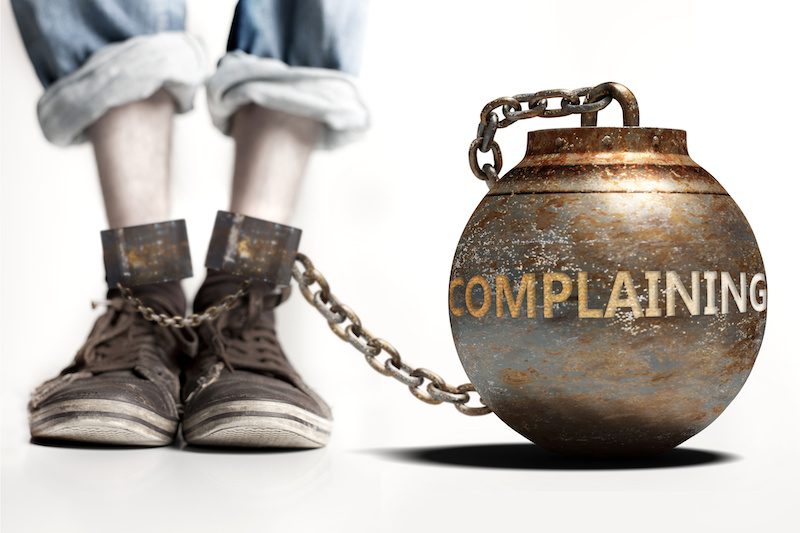You might not imagine complaining about safety at work is particularly bad for you. After all, everyone does it at one time or another and there’s plenty to complain about in the world of mining safety where sometime we might feel that our company or manager is more focussed around production than safety. A little grumble here and there can even lead to bonding with your co-workers. Interestingly though, science reveals you might eventually damage your brain if you nit-pick and whinge constantly about your troubles at site.
What you focus on grows
Have you noticed what you repeatedly complain about at work about sticks in your mind? You might stop moaning about how much you hate a new process or procedure at work, for instance, but the topic will pop back into your head for no clear reason later. You will often re-read or look for reasons why it won’t work..or why it is flawed. Quite often you’ll seek out like minded people to re-inforce your thoughts.
While that’s not a bad thing to be critical and challenge things in the interest of mining safety (particularly those elements of critical risk), once you give a subject your full consideration, and couple your focus with an intense emotion, your brain marks it out as worthy of special attention. Your thoughts will return to your complaints and your dissatisfaction with life overall may increase.
Neurons that fire together wire together
The reason you must keep thinking about subjects you complain about is scientific. Studies show connections to support your complaints form in your brain. Neural links accommodate future similar thoughts. The more you complain, then, the greater the likelihood your mind will produce a continual stream of negative thoughts.

Your ability to solve problems will fade
The best way to deal with disliked situations is to seek solutions to thwart them. A proactive response, rather than verbalizing how much you hate circumstances, will increase your ability to problem-solve another time. Whining has the opposite impact.
Research shows complaining harms the hippocampus–the part of your brain that, among other actions, helps you find solutions. Complain, but don’t seek to resolve problems, and finding solutions on other occasions will be difficult.
Swimming in stress
Complaints can be recipes for future stress. You can’t talk about something that upsets you without triggering a chemical reaction. The stress hormone cortisol will ramp up production if you gripe and complain.
It is fair to say that people often imagine the subjects they complain about make their well-being dip. Although they might be right at times, at other times a decline in wellness stems from complaining.
The upshot of cortisol overload is reduced immunity, decreased wellness, sleepless nights, and various other negative consequences. The next thing before we know it, we can be off work with a stress related claim and ultimately that can exacerbate the problem I=even further.
The next time you feel the urge to complain at work, or someone goads you to join in with them as they bellyache, stop.
Remember the long term negative effects of nit-picking. If you want to stay happy and healthy, plus keep your brain intact, consider how to improve unwanted situations rather than moan about them.
Stress is a real health & safety issue and good mental health amongst a work team will make it more productive. Chronic stress can manifest itself in a range of conditions including:
- Anxiety
- Depression
- Digestive problems
- Headaches
- Heart disease
- Sleep problems
- Weight gain
- Memory and concentration impairment
Stress management and focusing on the ‘key issues’
While there’s many ways to manage workplace stressors, complaining is not one of them. Adopting a problem solver approach might be just what you need. Of course there’s a range of other ways to help with stress including:
- Eating a healthy diet and getting regular exercise and plenty of sleep
- Practicing relaxation techniques such as trying yoga, practicing deep breathing, getting a massage or learning to meditate
- Taking time for hobbies, such as reading a book or listening to music
- Fostering healthy friendships
- Having a sense of humor
- Volunteering in your community
- Seeking professional counseling when needed
While they don’t all work for everyone, it’s fair to say that being a problem solver instead of a problem complainer is a great start to managing stress at work.
Here’s to a new year where we all can contribute more to solving mine safety problems rather than only complaining about them.
Read more Mining Safety News













Add Comment